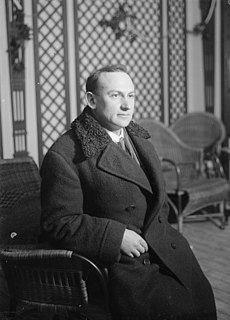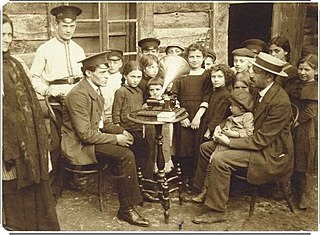Related Research Articles

The Song of Songs, also Song of Solomon, Canticle of Canticles, or Canticles, is one of the megillot (scrolls) found in the last section of the Tanakh, known as the Ketuvim. It is unique within the Hebrew Bible: it shows no interest in Law or Covenant or the God of Israel, nor does it teach or explore wisdom like Proverbs or Ecclesiastes ; instead, it celebrates sexual love, giving "the voices of two lovers, praising each other, yearning for each other, proffering invitations to enjoy". The two are in harmony, each desiring the other and rejoicing in sexual intimacy. The women of Jerusalem form a chorus to the lovers, functioning as an audience whose participation in the lovers' erotic encounters facilitates the participation of the reader. Scholars differ on when it was written, with estimates ranging from the 10th to 2nd century BCE, with an analysis of the language used suggesting the 3rd century BCE.
Miriam Gideon was an American composer.
Yiddish song is a general description of several genres of music sung in Yiddish which includes songs of Yiddish theatre, Klezmer songs, and "Yiddish art song" after the model of the German Lied and French mélodie.

Joseph Yulyevich Achron, also seen as Akhron was a Russian-born Jewish composer and violinist, who settled in the United States. His preoccupation with Jewish elements and his desire to develop a "Jewish" harmonic and contrapuntal idiom, underscored and informed much of his work. His friend, the composer Arnold Schoenberg, described Achron in his obituary as "one of the most underrated modern composers".

Solomon Rosowsky was a cantor (hazzan) and composer, and son of the Rigan cantor, Baruch Leib Rosowsky.

Vladislav Shoot is a Russian-British composer of contemporary classical music. Born in Voznesensk, Soviet Union, now Ukraine, he moved to the United Kingdom in the early 1990s, settling on the artists' estate of Dartington Hall.

The Gnessin State Musical College and Gnesins Russian Academy of Music is a prominent music school in Moscow, Russia.

Maximilian Osseyevich Steinberg was a Russian composer of classical music.
The Jewish art music movement began at the end of the 19th century in Russia, with a group of Russian Jewish classical composers dedicated to preserving Jewish folk music and creating a new, characteristically Jewish genre of classical music. The music it produced used Western classical elements, featuring the rich chromatic harmonies of Russian late Romantic music, but with melodic, rhythmic and textual content taken from traditional Jewish folk or liturgical music. The group founded the St. Petersburg Society for Jewish Folk Music, a movement that spread to Moscow, Poland, Austria, and later Palestine and the United States. Although the original society existed formally for only 10 years, its impact on the course of Jewish music was profound. The society, and the art music movement it fostered, inspired a new interest in the music of Eastern European Jewry throughout Europe and America. It laid the foundations for the Jewish music and Klezmer revival in the United States, and was a key influence in the development of Israeli folk and classical music.

Henry Lynn was a film director, screenwriter, and producer, who concentrated on Yiddish life and culture in the United States, early twentieth century, (1932–1939), the era of Yiddish film in America. Lynn was an innovator in sound technology, frequently commissioned original music, and he used popular radio and opera stars Boris Thomashefsky, Esther Field, and Seymour Rechzeit, as well as New York stage actors like Celia Adler.
Lazare Saminsky, born Lazar Semyonovich Saminsky, was a performer, conductor and composer, especially of Jewish music.
Mikhail Fabianovich Gnessin was a Russian Jewish composer and teacher. Gnessin's works The Maccabeans and The Youth of Abraham earned him the nickname the "Jewish Glinka".

Alexander Borisovich Zhurbin is a Russian composer.

Joel Engel was a music critic, composer and one of the leading figures in the Jewish art music movement. Born in Russia, and later moving to Berlin and then to Palestine, Engel has been called "the true founding father of the modern renaissance of Jewish music."

Elizaveta Grigorevna Polonskaya, born Movshenson (Russian: Мовшенсо́н; June 26 [O.S. June 14] 1890 – January 11, 1969), was a Russian Jewish poet, translator, and journalist, the only female member of the Serapion Brothers.

Susman Kiselgof was a Russian-Jewish folksong collector and pedagogue associated with the Society for Jewish Folk Music in St. Petersburg. Like his contemporary Joel Engel, he conducted fieldwork in the Russian Empire to collect Jewish religious and secular music. Materials he collected were used in the compositions of such figures as Joseph Achron, Lev Pulver, and Alexander Krein.
The New Jewish School was a movement in Russia of the 1900s to create a national Jewish art music. It was connected with the founding of the Society for Jewish Folk Music.
Lev Mordukhovich Tseitlin, billed as Leo Zeitlin, was a Russian-Jewish composer. In 1923, he emigrated to the United States. His best-known work is Eli Zion, a paraphrase for piano and cello "on a folk theme and trope of 'Song of Songs'".
Jacob Weinberg was a Russian-born Jewish composer and pianist who composed over 135 works for piano and other instruments. He was one of the founders of the Jewish National Conservatory in Jerusalem before immigrating to the U.S. where he became "an influential voice in the promotion of American Jewish music" from the 1940s until his death.
Alex Weiser is an American composer of contemporary classical music.
References
- ↑ "Dolmetsch Online - Composers Biography S". www.dolmetsch.com. Retrieved 2021-10-28.
- ↑ Hixon, Donald L.; Hennessee, Don A. (1993). Women in Music: An Encyclopedic Biobibliography. Scarecrow Press. ISBN 978-0-8108-2769-1.
- ↑ "Sweet Is Thy Voice: The Song of Songs in Concert". YIVO Institute for Jewish Research. Retrieved 2021-10-28.
- ↑ Stewart-Green, Miriam (1980). Women Composers: A Checklist of Works for the Solo Voice. G.K. Hall. ISBN 978-0-8161-8498-9.
- ↑ McVicker, Mary F. (2016-08-09). Women Opera Composers: Biographies from the 1500s to the 21st Century. McFarland. ISBN 978-0-7864-9513-9.
- ↑ Violin Music by Women Composers: A Bio-bibliographical Guide. Greenwood Press. 1989. ISBN 978-0-313-26652-2.
- ↑ Be?zer, Mikhail (1989). The Jews of St. Petersburg: Excursions Through a Noble Past. Jewish Publication Society. ISBN 978-0-8276-0321-9.
- 1 2 3 4 5 6 7 8 9 10 11 12 13 14 15 16 17 18 19 Cohen, Aaron I. (1987). International Encyclopedia of Women Composers. Books & Music USA. ISBN 978-0-9617485-1-7.
- ↑ "Saminsky, Lazare". Milken Archive of Jewish Music. Retrieved 2021-10-28.
- ↑ "YIVO | Society for Jewish Folk Music". yivoencyclopedia.org. Retrieved 2021-10-28.
- 1 2 "A Simple Soviet Man (Советский простой человек), song". Мир русской грамзаписи. The World of Russian Records. Retrieved 2021-10-28.
- ↑ Shir Hashirim by Lyubov Streicher , retrieved 2021-10-28
- ↑ Weisser, Albert (1954). The Modern Renaissance of Jewish Music, Events and Figures, Eastern Europe and America. Bloch Publishing Company.